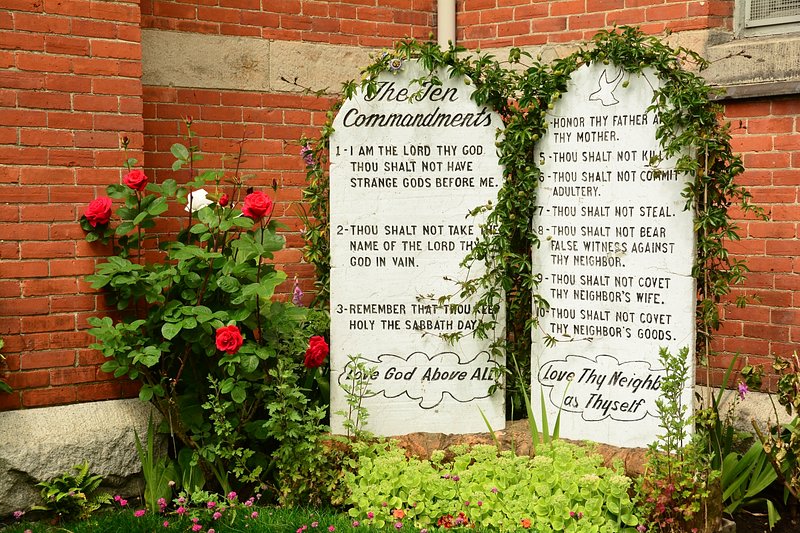South Dakota’s Ten Commandments School Display Bill Sparks Controversy
South Dakota’s legislature is witnessing significant debate over a proposed bill that would mandate the display of the Ten Commandments in public school classrooms. Senate Bill 51, introduced by State Senator John Carley and Representative Phil Jensen, is reminiscent of contentious measures seen in other states.

Senator John Carley
Sen. John Carley, a newly elected member of the South Dakota Senate for the 29th district, emphasizes the importance of illustrating the historical significance of the Ten Commandments. Carley, a Biola University alumnus, believes that teaching students moral guidelines like the Ten Commandments can foster community values.
“We need to illustrate our history and truth. Some people may want to say, ‘We don’t want to talk about these topics,’ but the Ten Commandments certainly were a part of the founding of our country,” Carley stated. If passed, the law would require schools to display the commandments prominently with at least eight inches by fourteen inches, accompanied by a statement highlighting their historical significance.

Representative Phil Jensen
In addition to the religious text, the legislation allows space for other notable documents such as the Mayflower Compact and the Declaration of Independence, aiming to enrich students’ understanding of American heritage and governance.
ACLU Raises Constitutional Concerns
The ACLU of South Dakota has expressed strong opposition, arguing that the bill infringes on First Amendment rights. Libby Skarin, Executive Director of the ACLU’s South Dakota and Wyoming chapter, warns that the measure could marginalize students from diverse religious backgrounds.
“The First Amendment guarantees families and faith communities—not politicians or the government—the right to instill religious beliefs in their children. Displaying the Ten Commandments in our state’s classrooms blatantly violates this promise,” the ACLU of South Dakota stated in an official release.

ACLU of South Dakota
The organization cites the 1980 U.S. Supreme Court decision Stone v. Graham, which concluded that similar mandates violate constitutional principles. Skarin noted that students already have the right to voluntary religious exercises at school without the need for state-imposed displays, such as praying or reading religious literature during free time.
Reactions Across South Dakota
Public opinion in South Dakota is divided. Proponents of SB 51 argue that it reflects the state’s deep-rooted Christian values, which permeate much of South Dakota’s community life. With over 60% of the population identifying as Christian, many residents support initiatives they believe strengthen moral teachings in schools. However, others argue for the separation of church and state as a foundational democratic principle.
The debate extends beyond religious lines. Teachers and administrators voice concerns over potential disruptions and legal battles that may arise if the bill becomes law. School districts fear the financial implications of legal challenges, pointing to recent events in Louisiana as a cautionary tale.
Looking Forward
As the bill progresses through legislative channels, South Dakota citizens watch closely. Measures like SB 51 have raised awareness around the importance of civic engagement and the role of personal beliefs in public education. The potential precedent set by this legislation could resonate beyond South Dakota, impacting educational policies nationwide.
Sen. Carley and his colleagues remain steadfast, hopeful that the bill will pass and serve as a valuable educational tool. Meanwhile, the ACLU and other critics stand ready to contest the legislation, advocating for constitutional rights and individual freedoms.
To participate in this ongoing debate and learn more about the ACLU’s campaign against the bill, visit the ACLU of South Dakota website.
